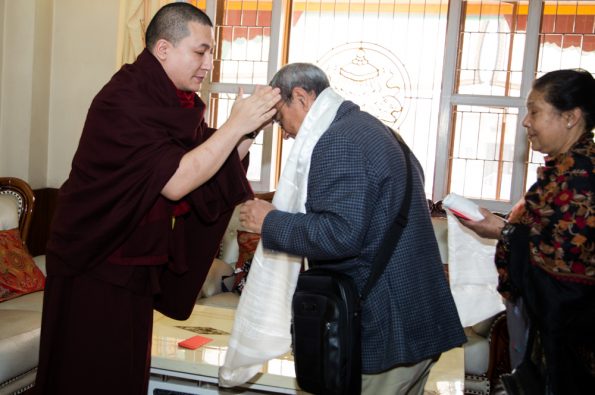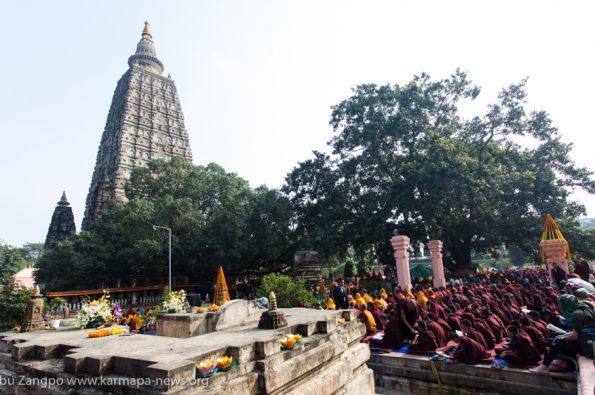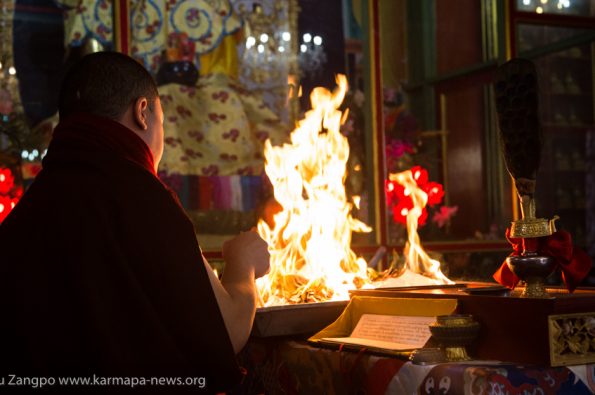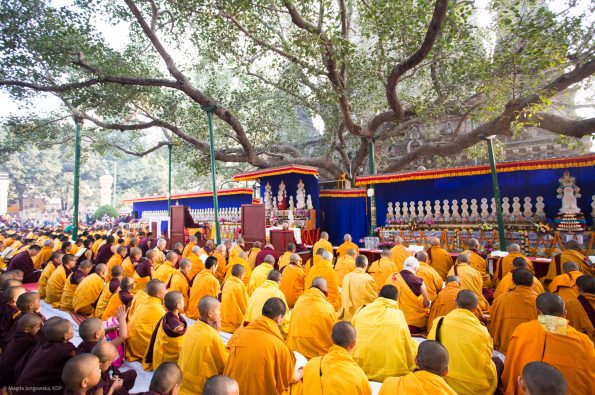02.04.2020
Thaye Dorje, His Holiness the 17th Gyalwa Karmapa, shares the following teaching relating to karma

Owning your own karma, by saying ‘it’s your own doing,’ is simply one way of talking about karma.
The concepts of time, self and language used in ‘it’s your own doing’ play a powerful part in describing karma. In fact, with the tools we have, we have no other way but to describe it in this way. It is as though there was an ‘I’ that caused something in the past to result in this present experience, in a linear way. But that’s just a way of explaining it – nothing more.
It is helpful on a relative level because I feel that this experience that I am going through is so vivid, and I want to be able to make sense of it. And so, this statement is almost the only way to put it into words.
However, if we strip away the concept of time for a moment, then what is left is just the causal aspect of karma, in which the past does not play any part. Then, we will find that, when owning our karma, the infinite burden of time is not weighing us down.
Next, we strip away the concept of ‘I’, or in this case ‘your’ and ‘it’s’, and then what is left of the statement is ‘own doing’. Since factors of subject and object are stripped away, the concept of ‘own’ has no place, and then just ‘doing’ will be left.
After a while ‘doing’ will become a mere sound – ‘Doing!’ Nothing more. Then there is even less burden – in fact there is no burden at all. There is not even a ‘here’ or ‘now’, both of which belong to the concept of time.
Nevertheless, the concepts of time, self, and all of the linguistic tools used have all played their part in their own way. They have not claimed any merit for their part and have departed naturally after conveying an answer to our question about how we can make sense of what we feel.
Ever since the time of Buddha Shakyamuni, all educational institutes or Viharas have been founded with the sole purpose and with the sole hope of making the knowledge of understanding karma (which is synonymous with change) available to all.
The establishment of these spiritual environments was never about anything else. It was never about escaping karma or change. The nature of enlightenment or liberation was presented simply as a means to inspire us to own change, to own karma.
Achieving Nirvana is never a separate entity from change.
Enlightenment is the complete acceptance of change.
With this attitude, practice as well as you can.
If it helps to think that you are practicing for all, then do just that.
But there is no need to practice with a sense of a burden.
All you need to do is just use these means to accept change.’




